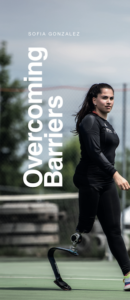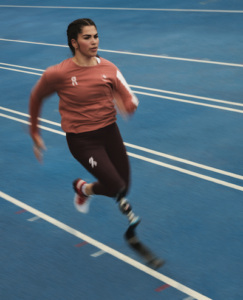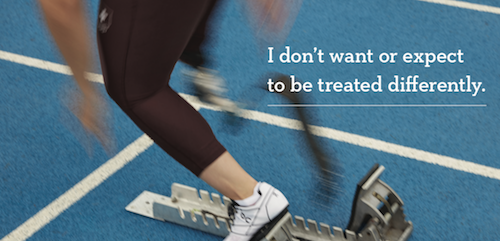 A couple of years ago, organisational psychologist and bestselling author Adam Grant wrote an article in the New York Times in which he argued that adults should stop asking children what they want to be when they grow up. The question is often asked in expectation of an answer that involves work, and Grant believes that children should think about their future beyond just work.
A couple of years ago, organisational psychologist and bestselling author Adam Grant wrote an article in the New York Times in which he argued that adults should stop asking children what they want to be when they grow up. The question is often asked in expectation of an answer that involves work, and Grant believes that children should think about their future beyond just work.
Still, it is no surprise to learn that when surveyed, almost one-fifth of school children in the UK said they’d like to be a doctor or a nurse when they grow up*. It is worth pointing out that in the same survey, the same number of children said they wanted to be a professional footballer, so there is still a large amount of imagination at play here.
But there was a very, very strong reason Sofia Gonzalez had an early desire to practice medicine. “I always thought I’d be a doctor,” she says, “because I really want to do as much as I can to help kids like me who have undergone an amputation.”
What Sofia did not think at all, is that what she would become was an athlete. The irony is not lost on her now.
Born in London in 2001 to Swiss parents, Sofia suffered from a congenital deformity to her right leg. After three years, Sofia’s parents took the difficult decision to allow doctors to amputate their daughter’s lower right leg, just below the knee. The surgery, carried out in Zurich, was a success. But Sofia’s parents knew that she would have a difficult journey ahead of her. And they were determined that she would not be limited by her disability, as far as that was possible.
Still, as Sofia grew up, sport did not play a dominant role in her life. Like many young girls, she was active: horse-riding, skiing, climbing and swimming. But sport was understandably difficult, especially with a prothesis that was designed for daily movement, not physical activity. “The idea that I wanted to be a doctor really came about because of my experience in hospital,” says Sofia. “It was actually such a good experience. The doctors and nurses were all amazing. And I was in and out of hospital a lot. Some people hate the idea of going to hospital. But I was lucky – I really didn’t mind it.”
Sofia’s mindset change regarding sport was thanks to a huge dose of inspiration – and finding a company that made competing possible. Sofia and her family travelled to London for the 2012 Paralympic Games and watched many of the events taking places there. Sofia’s mother was particularly enthusiastic and told her daughter that she could try some of the sports they had been watching, if she wanted to. Her parents were still determined that Sofia would not be defined by her disability.
 Sofia Gonzalez says that seeing the Paralympians compete was incredibly inspiring. But it was not until a few years later that a key component to Sofia’s sporting success came into play. “In 2016 I went to an open day at prosthetic maker Otto Bock,” Sofia recalls, “and there I had the chance to try out one of the ‘blades’ they manufacture. It was amazing to realise that I could be so fast. In fact, I had a friend who was already competing on the track and I wanted to do what she did. With the Otto Bock leg, I realised that was a possibility.”
Sofia Gonzalez says that seeing the Paralympians compete was incredibly inspiring. But it was not until a few years later that a key component to Sofia’s sporting success came into play. “In 2016 I went to an open day at prosthetic maker Otto Bock,” Sofia recalls, “and there I had the chance to try out one of the ‘blades’ they manufacture. It was amazing to realise that I could be so fast. In fact, I had a friend who was already competing on the track and I wanted to do what she did. With the Otto Bock leg, I realised that was a possibility.”
The inspiration of the London Paralympic Games and the opportunity that a running- specific prosthetic leg represented combined to give Sofia the impetus to try running – specifically sprinting. “I’d always had an outgoing personality,” she explains, “but when I was in my teens I went through a phase of hiding my prosthetic. The London Games and the Otto Bock leg really changed that.”
Once Sofia started training and competing, she discovered that she had a significant talent on the track. In 2018, she competed in her first international championships in Berlin. Her results at that meet cemented the realisation in Sofia’s mind that she was good… so much so that she started to dream and plan about competing at the Paralympic Games in Tokyo, then Paris in 2024 and Los Angeles four years after that.
One big hurdle that Sofia and her family had to overcome was obtaining a racing prosthetic. The leg that Sofia would need costs tens of thousands of dollars, which was beyond her family’s means. Thankfully Sofia’s potential as an athlete was already apparent and a sponsor – Push Sports – helped Sofia’s parents buy her first sprinting-specific blade. Once Sofia had her new leg, she really progressed as an athlete.
One crucial element of Sofia’s development can be traced back to the approach her parents took – not treating their daughter differently to other children. So Sofia joined an athletics club – CA Riviera – to train with and compete against able-bodied athletes. Her friends, basically. “Initially training with CA Riviera was scary,” Sofia admits, “because I knew I was different to everyone else there. But in actual fact being part of that club and being surrounded by able-bodied athletes has actually helped my confidence grow.
“Not long after I joined the club I really started to see myself as an athlete. To see myself as the same as my teammates. And actually, because I have to work harder than the sprinters with two legs, I have improved more than I would have without that disadvantage.”
As awareness of parathletes has grown, thanks in part to the Paralympics, there has been some debate in the specialist press about whether wearing prosthetics could actually be an advantage for sprinters. This debate was thrust into the mainstream in 2012 when double amputee South African Oscar Pistorius was allowed to compete in the 400m at the Olympic Games, against able- bodied athletes. To get to the start line Pistorius had to overturn a ban, imposed by the International Association of Athletics Federations (IAAF), handed to him in 2008. The argument for the ban was that Pistorius would actually be at an advantage from his carbon-fibre “cheetah” blades, which could store more energy during each stride and which weighed less than a human lower leg.

For Sofia, there is a serious point linked to this. “One of the reasons I have to work harder than my team mates at the club is that there is no advantage for a single-leg amputee,” she says. “In fact, it is a disadvantage – so I’m not on a level playing field. That has now been proven.”
What Sofia has been able to do by training with able-bodied athletes is change perceptions. “One of the outcomes from how hard I train is that I have opened [my teammates’] minds to the truth,” says Sofia. “The team see how hard I work and that I don’t want or expect to be treated differently. And now they are all very supportive.”
So where does that leave Sofia Gonzalez now?
“I have always been a big dreamer,” she says, “and I haven’t really allowed my thinking and my dreams to be limited by my disability. What I do think about a lot now is my ‘why’ when it comes to doing what I do. “I am really excited about what the future holds. In the short term, I have been selected to compete in Tokyo at the Paralympic Games. And whilst I’m looking forward to that, I am not putting myself under too much pressure. My focus is almost beyond those first Paralympic Games – I’m looking forward to Paris 2024. By that time quite a few of the current best athletes will have retired and I am confident that I will be getting faster and stronger. So I’ll be aiming to win medals in Paris. And beyond that… we’ll see.”
Sofia delivers this overview of her dreams for the future with a disarming calmness and a bright, open smile. And that is possibly one of the reasons she will succeed. Sofia is not afraid. She is not scared. And she is not limited in her thinking. Sofia embraces her dreams and works hard to make them reality, without carrying the weight of them.
So watch out, because while as a young girl Sofia did not think she’d be an athlete, once she discovered sprinting, she threw herself into it without a second thought about limitations. And that is what creates winners.
* Survey of 1,100 children by Halifax Bank in May and June 2020
_________

